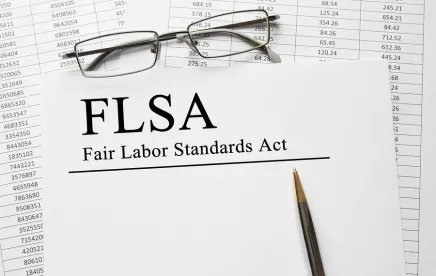After years of uncertainty, on September 24, 2019, the Department of Labor released a Final Rule making changes to the Fair Labor Standards Act (“FLSA”) overtime regulations.
BACKGROUND
Since 2004, there had been no significant changes in the overtime salary thresholds under the FLSA. In 2016, the Obama administration attempted to make significant increases to the salary thresholds. Those proposed changes came to a halt when a federal judge in the Eastern District of Texas, granted a preliminary injunction, and ultimately invalidated the rule. Now, several years later, the DOL’s Final Rule provides employers with much more certainty as to their obligations under the FLSA.
THE FINAL RULE
The rule is set to take effect on January 1, 2020, and makes the following changes to the current overtime regulations:
Salary Threshold for Executive, Administrative, and Professional Workers
The salary threshold to meet the executive, administrative, or professional exemption will now be set at $35,568 per year or $684 per week (an increase from the current $23,660 annual/$455 weekly requirement).
Salary Threshold for “Highly Compensated” Workers
The salary threshold to meet the “highly compensated” worker exemption will now be set at $107,432 per year (an increase from the current $100,000 annual requirement).
Bonuses and Commissions
The Final Rule also permits employers to use nondiscretionary bonuses and incentive payments (including commissions), that are paid at least annually, to satisfy up to 10% of the salary threshold.
No Mandatory Increase is Required
In prior proposed rules (and in the Obama-era rule), language had been considered which would require the salary thresholds to be increased every several years. The DOL chose to dispense with this requirement in its Final Rule, noting that such a requirement would “deprive the department of flexibility to adapt to unanticipated circumstances.”
EFFECTS ON EMPLOYEES AND EMPLOYERS
The DOL estimates that approximately 1.3 million additional workers will now be eligible for overtime. Employers should consider auditing their wage practices to ensure that, come the new year, all non-exempt employees are being properly paid overtime to avoid high-penalty FLSA claims.
Employers in states with more stringent overtime standards, such as California, should continue complying with their state wage laws, as the FLSA does not preempt any stricter state laws.



 />i
/>i

